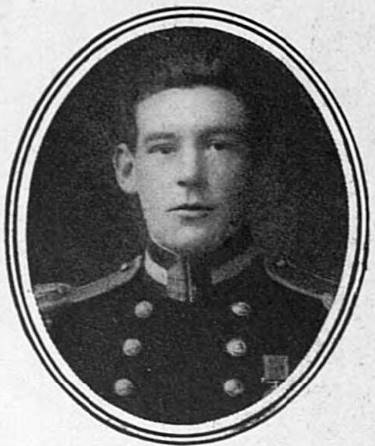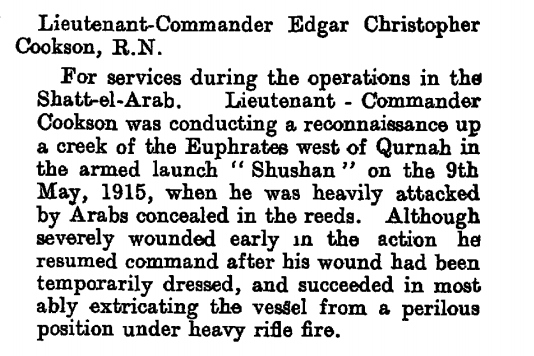This article will show you how to use the London Gazette to research a soldier who served in the First World War. The London Gazette is of most use when researching officers, as their commission, promotion dates, appointments etc. will appear in its issues. However, whether you can find them or not is another matter! I have also written other guides to help you research soldiers who served in the British or Indian Army which can be viewed by clicking on the links below:
- Guides to Researching Soldiers who Served in the British Army
- Guides to Researching Soldiers who Served in the Indian Army
Using The London Gazette to Research WW1 Soldiers
The London Gazette is a newspaper of record which is particularly useful when researching officers and those granted honours or gallantry awards during the First World War. Available online and free to use, the London Gazette can be viewed by clicking on the link below which will take you to the search page of The London Gazette which has been set to search between 01 June 1914 and 31 December 1920
Search The London Gazette
Type the name of the person you want to research into the search bar on the left-hand side of the page and click Update Results. You will then be given a list of matches. To open a result, click on the blue underlined heading.
How to Search the London Gazette
Unfortunately, while the London Gazette is full of useful information it is often very difficult to find what you are searching for. This is due to the London Gazette search engine using Optical Character Recognition (OCR) to convert scanned pages into searchable text. However, there isn’t a 100% accuracy rate and certain letters can be confused with one another (c and o, i and l). If you are having trouble searching for a soldier who should appear, try a combination of their names, unit and the reason for searching (award, rank, etc.). However, even searching a combination will sometimes bring no results.
Searching for Officers
The London Gazette will contain an entry for each officer who was commissioned into the army or subsequently promoted. Notice how none of the officers have a personal number which would be brought in after the war. This can make finding the correct officer difficult if you’re researching a common surname. Typical entries will read:
The undermentioned Second Lieutenants to be Lieutenants: Philip Saltmarshe. Dated 2nd July, 1915.
The undermentioned Privates from the Duke of Lancaster’s Own Yeomanry to be Second Lieutenants. Dated 16th June, 1915: Donald Marshall. Kenneth Mudie.
The undermentioned Lts. resign their commissions, 8th Oct 1920, and retain their ranks: – H. W. Richardson. A. Short, M.C. G. Sykes. C. E. Townend, M.C.
However, officers who were promoted did not always have their name in full and you will need to search by initials. For Philip Saltmarshe I also searched “P. Saltmarshe”. If you are searching for an unusual surname like Saltmarshe I would suggest only searching the surname. While this can be a time consuming-process, it will often save you more time in the long run, especially if you’re only researching one or two officers. If you’re researching an officer’s promotion dates and appointments, you can also find them in the British Army List, Hart’s Army List and the Indian Army List.
Searching for Gallantry Medal or Honour
The London Gazette will contain official announcements of the award of a gallantry medal or honour. Though, not all foreign awards or mentioned in despatches were gazetted. If there is a citation, it will either appear in the issue the award was gazetted or at a later date:
- Victoria Cross: There was always a citation published
- Distinguished Conduct Medal: There was always a citation published
- Distinguished Service Order: The notification of the award will appear but there’s not always a citation.
- Military Cross: There was often a citation but not always. Citations may appear in the same London Gazette the medal was gazetted in or in a later issue.
- Military Medal: There are only a handful of citations carried in the London Gazette and this is the most difficult gallantry medal to research.
The original citation cards for the military medal were destroyed during the Blitz. However, once you have located the date a military medal was gazetted (approximately 3 months after the act of gallantry but a lot of gazettes referred to specific time periods a lot earlier than 3 months), you can consult the unit’s war diary or soldier’s local newspapers to try and find out the circumstances for which it was awarded. There’s a good chance that you’ll be able to find out the circumstances which led to a military medal being awarded, though it often takes a lot of time.
If you research a lot of officers, then I would recommend buying a copy of For Distinguished & Meritorious Services in Time of War: The Great War Recipients of the Military Cross 1914 – 1920 by Peter Warrington. This book contains a complete list of those of the British and Commonwealth who were awarded a Military Cross during the war, along with the date it was gazetted and the citation was published (if there was one). I constantly use this book in my research and it has enabled me to find citations which I could not find by searching the London Gazette. The link below will take you to Amazon but you can often find it on sale on the Naval and Military Press website.
Below is the announcement of the award of a Victoria Cross to Lieutenant-Commander Edgar Christopher Cookson which appeared in the Supplement to The London Gazette on Friday 21 January 1916. All citations for the Victoria Cross were published in the London Gazette.


